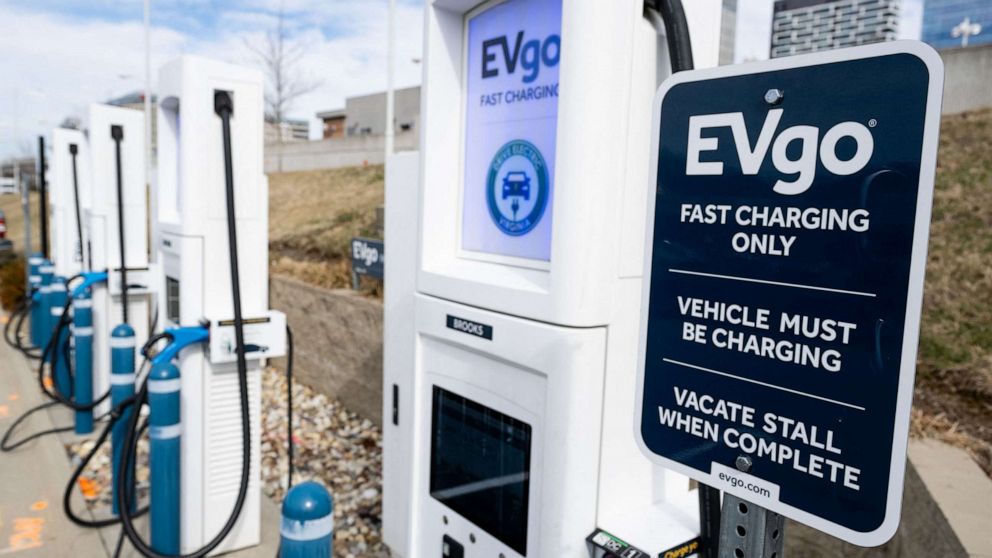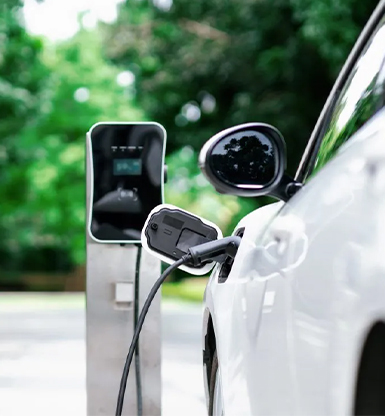Everything You Should Know Before You Decide to Buy EV Charging news
Everything You Should Know Before You Decide to Buy EV Charging news
Blog Article
New Advancement in EV Charging: How the Industry Is Advancing to Fulfill Demand
As the electric vehicle (EV) market continues to expand, the billing framework is undertaking considerable makeovers to address the rising need. Trick growths in ultra-fast charging technologies, coupled with clever grid assimilation, are reshaping the landscape. Advancements in battery technology pledge improved effectiveness and sustainability. Nevertheless, the search of worldwide charging standards continues to be an essential aspect in allowing seamless user experiences and prevalent adoption. The effects of these improvements elevate essential questions concerning the future of EV billing and its function in the more comprehensive power environment.
Development of Billing Facilities
The quick expansion of electrical car (EV) billing facilities is an essential element in helping with the widespread adoption of electric mobility. As federal governments, personal business, and consumers progressively identify the significance of lowering carbon discharges, financial investments accountable networks have risen. This infrastructure development is crucial to minimize range anxiety, ensuring that EV individuals have hassle-free access to charging stations.
Substantial innovations accountable terminal modern technology and deployment approaches have arised. Urban areas are seeing a spreading of public billing terminals, while rural areas are gradually being integrated right into the charging network. Additionally, partnerships between automobile producers and charging service providers are coming to be more common, assisting in the establishment of comprehensive networks that improve user experience and availability.
On top of that, the combination of renewable resource sources right into charging terminals is acquiring momentum, advertising sustainability in the EV ecosystem. This shift not just sustains ecological objectives but likewise straightens with the increasing need for green energy services among consumers.
Ultra-Fast Charging Technologies
Ultra-fast billing modern technologies represent a significant jump onward in the EV charging landscape, allowing electric lorries to charge in a portion of the time compared to standard billing approaches. These innovations generally deliver power levels going beyond 150 kW, with some systems reaching up to 350 kW or more, substantially reducing billing times to as low as 15-30 mins for a considerable fee.
Secret making it possible for modern technologies include innovations in battery chemistry, power electronic devices, and thermal administration systems. As an example, high-capacity batteries with boosted thermal stability allow for faster billing without overheating. Furthermore, advancements in billing facilities, such as liquid-cooled wires and modular billing terminals, promote reliable power transfer, enhancing the overall individual experience
Significant automotive suppliers and innovation companies are actively spending in ultra-fast charging networks, acknowledging the essential role they play in conquering range anxiousness and accelerating the adoption of electrical vehicles. As these innovations end up being more widely available, the EV market is anticipated to witness significant development, making electric wheelchair an extra attractive choice for consumers. Overall, ultra-fast charging technologies are crucial in forming the future of lasting transport, leading the way for a more considerable and efficient charging ecosystem.
Smart Grid Combination

Via need feedback techniques, wise grid systems can readjust charging schedules based on grid conditions and power prices. Throughout periods of high need, charging can be postponed to off-peak hours, resulting in lower expenses for customers and reduced pressure on the grid. Furthermore, vehicle-to-grid (V2G) innovations allow EVs to release power back right into the grid, offering secondary solutions and boosting grid stability.
Integration with renewable resource sources better improves the sustainability of EV charging. By aligning charging activities with periods of high solar or wind generation, smart grids promote a greener charging framework. Ultimately, wise grid combination not just supports the expanding demand for EVs yet also contributes to a much more sustainable and resistant power future, positioning the market for lasting success.
Battery Technologies
In the middle of the fast evolution of electrical automobiles (EVs), battery advancements stand at the forefront, driving improvements in performance, sustainability, and performance. As the need for EVs surges, producers and researchers are focusing on improving battery innovations to attend to challenges such as range anxiousness and billing times.
Lithium-ion batteries stay the most extensively used technology, yet new materials and chemistries are arising to enhance energy density and longevity. Solid-state batteries, as an example, promise higher power storage capability and boosted safety by replacing liquid electrolytes with strong ones. This shift could dramatically minimize the risk of fire and increase the lifespan of batteries.
Furthermore, improvements in battery recycling procedures are crucial for sustainability. Companies are creating approaches to recoup useful products like lithium, cobalt, and nickel from utilized batteries, advertising a circular economy and reducing ecological effect.

Global Billing Standards

Initiatives are underway to develop worldwide billing requirements that assist in compatibility among different EV designs and charging terminals. Organizations such as the International Electrotechnical Commission (IEC) and the Culture of Automotive Engineers (SAE) are functioning collaboratively with automotive makers and energy carriers to create comprehensive guidelines. EV Charging news. These standards purpose to streamline the charging procedure, reduce the need for numerous adapters, and improve individual experience
In addition, standardization can significantly reinforce the development of the charging network, as it urges financial investment by making facilities advancement more predictable and reliable. As the EV market develops, a unified technique to billing requirements will be important for guaranteeing that customers can this bill their vehicles conveniently and accurately, thereby supporting the broader shift to lasting transportation.
Final Thought
The electrical lorry billing sector is undertaking considerable makeover to address the surging demand for lasting transportation. Innovations in billing infrastructure, ultra-fast technologies, smart grid integration, and ingenious battery services are critical in enhancing user experience and functional efficiency.
Urban areas are seeing an expansion of public billing terminals, while rural regions are gradually being incorporated right into the charging network. Furthermore, developments in charging framework, such as liquid-cooled cable televisions and modular charging stations, promote efficient power transfer, enhancing the total customer experience.
On the whole, ultra-fast charging technologies are critical in shaping the future of lasting transport, paving the means for a much more extensive and efficient billing ecological community. - EV Charging news
By lining up billing tasks with durations of high solar or wind generation, wise grids promote a greener charging infrastructure.Initiatives are underway to establish worldwide charging standards that help with compatibility amongst various EV versions and billing terminals.
Report this page